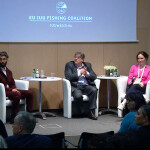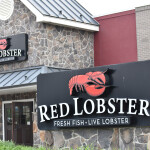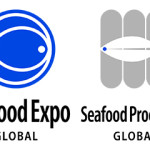European Union Fisheries Commissioner Maria Damanaki on Wednesday unveiled to the European Parliament her much-anticipated proposals for reform to the EU’s much-maligned Common Fisheries Policy (CFP).
“Our current system is not working in favor of sustainability; 75 percent of the EU’s stocks are overfished, and one-third of them is in a worrying state,” said Damanaki at a press conference following the release of her reform proposals. “If no reform takes place, only eight stocks out of 136 will be at sustainable levels in 2022. Business as usual is not an option.”
Damanaki proposed that all EU fish stocks reach sustainable levels by 2015 by adopting an ecosystem-based approach to fisheries management, based on the best available scientific advice.
To accomplish this, Damanaki proposed that the controversial practice of discarding fish at sea be phased out over time. “All catches have to be landed and counted against quotas,” she said.
Damanaki proposed introducing in 2014 transferable catch shares, or “concessions,” for vessels over 12 meters long. Concessions would be distributed by member states in a transparent way, and operators would be allowed to lease or trade their concessions within their member state, but not between member states. Concessions would have a minimum validity of 15 years.
Damanaki said the new system would give the EU fishing industry more flexibility and greater accountability while reducing overcapacity. Additionally, small-scale fisheries would be exempted from transferable catch shares. The EU’s small-scale fishing fleet represents 77 percent of the total number of vessels but only 8 percent of the total catch in terms of volume.
Damanaki also addressed “micro-management from Brussels” — a common criticism of the existing CFP, last reformed in 2002 — explaining that the new CFP would take a more regional approach to fisheries management whereby member states would implement measures and cooperate at regional level. She said the new CFP would include provisions to ensure that the member states adopt measures that are compatible and effective.
Damanaki also touched on aquaculture, emphasizing the need to implement a regulatory framework for sustainable fish farming to increase the EU’s seafood production and reduce its dependence on imported product. She proposed that members states be required to draft national strategic plans to remove administrative barriers and uphold environmental, social and economic standards. An Aquaculture Advisory Council would also be established to support the industry.
The release of Damanaki’s reform proposals kicks off a series off discussions, beginning with the EU Council of Ministers on 19 July, that will continue through the implementation of the new CFP in 2013. Whether her proposals will see the light of day rests with her ability to convince Members of European Parliament (MEPs) and members states that her approach will work.
During the press conference, Damanaki fielded a question about whether members states will be able to put aside their differences and won’t simply defend their own interests.
“Nobody is completely ready for change. But we have to try,” replied Damanaki. “We will use all of the means at our disposal to help members states adjust. We can’t afford to do business as usual any more. If we don’t do it, our children will see fish not on their plates but only in pictures. We need change.
“My difficulties now begin,” she added. “We have to persuade members states, the [seafood] sector, Parliament — we need everyone to cooperate.”





